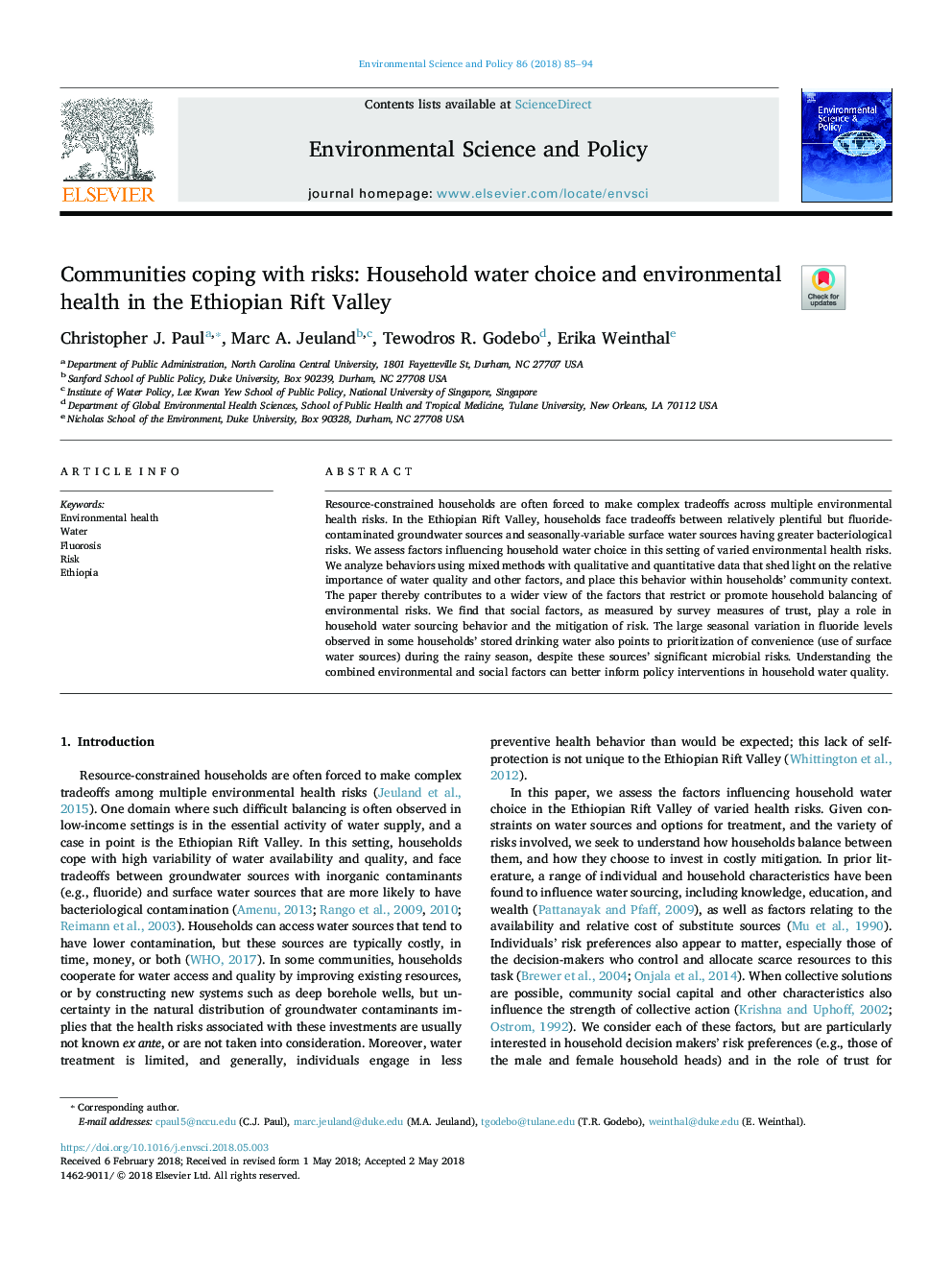| Article ID | Journal | Published Year | Pages | File Type |
|---|---|---|---|---|
| 7465872 | Environmental Science & Policy | 2018 | 10 Pages |
Abstract
Resource-constrained households are often forced to make complex tradeoffs across multiple environmental health risks. In the Ethiopian Rift Valley, households face tradeoffs between relatively plentiful but fluoride-contaminated groundwater sources and seasonally-variable surface water sources having greater bacteriological risks. We assess factors influencing household water choice in this setting of varied environmental health risks. We analyze behaviors using mixed methods with qualitative and quantitative data that shed light on the relative importance of water quality and other factors, and place this behavior within households' community context. The paper thereby contributes to a wider view of the factors that restrict or promote household balancing of environmental risks. We find that social factors, as measured by survey measures of trust, play a role in household water sourcing behavior and the mitigation of risk. The large seasonal variation in fluoride levels observed in some households' stored drinking water also points to prioritization of convenience (use of surface water sources) during the rainy season, despite these sources' significant microbial risks. Understanding the combined environmental and social factors can better inform policy interventions in household water quality.
Related Topics
Physical Sciences and Engineering
Energy
Renewable Energy, Sustainability and the Environment
Authors
Christopher J. Paul, Marc A. Jeuland, Tewodros R. Godebo, Erika Weinthal,
